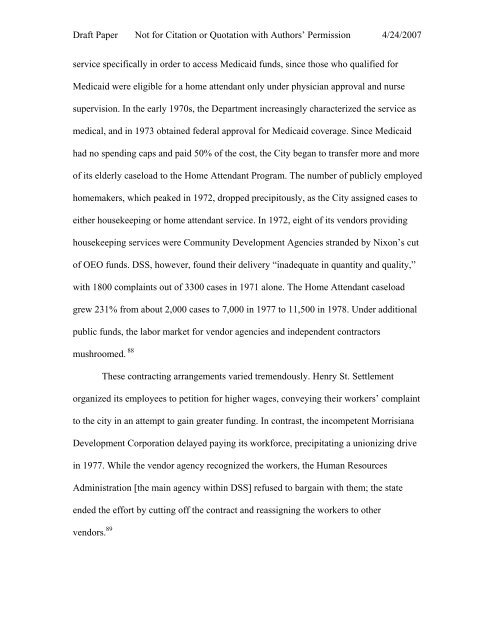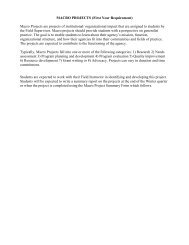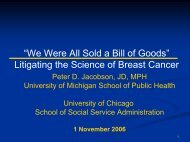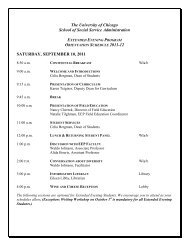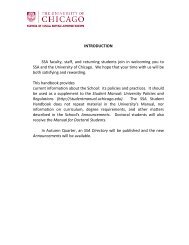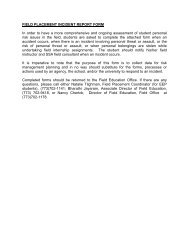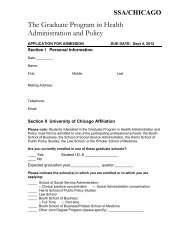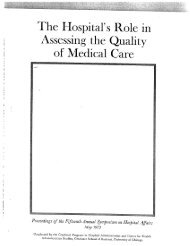Organizing Home Care: - School of Social Service Administration
Organizing Home Care: - School of Social Service Administration
Organizing Home Care: - School of Social Service Administration
Create successful ePaper yourself
Turn your PDF publications into a flip-book with our unique Google optimized e-Paper software.
Draft Paper Not for Citation or Quotation with Authors’ Permission 4/24/2007<br />
service specifically in order to access Medicaid funds, since those who qualified for<br />
Medicaid were eligible for a home attendant only under physician approval and nurse<br />
supervision. In the early 1970s, the Department increasingly characterized the service as<br />
medical, and in 1973 obtained federal approval for Medicaid coverage. Since Medicaid<br />
had no spending caps and paid 50% <strong>of</strong> the cost, the City began to transfer more and more<br />
<strong>of</strong> its elderly caseload to the <strong>Home</strong> Attendant Program. The number <strong>of</strong> publicly employed<br />
homemakers, which peaked in 1972, dropped precipitously, as the City assigned cases to<br />
either housekeeping or home attendant service. In 1972, eight <strong>of</strong> its vendors providing<br />
housekeeping services were Community Development Agencies stranded by Nixon’s cut<br />
<strong>of</strong> OEO funds. DSS, however, found their delivery “inadequate in quantity and quality,”<br />
with 1800 complaints out <strong>of</strong> 3300 cases in 1971 alone. The <strong>Home</strong> Attendant caseload<br />
grew 231% from about 2,000 cases to 7,000 in 1977 to 11,500 in 1978. Under additional<br />
public funds, the labor market for vendor agencies and independent contractors<br />
mushroomed. 88<br />
These contracting arrangements varied tremendously. Henry St. Settlement<br />
organized its employees to petition for higher wages, conveying their workers’ complaint<br />
to the city in an attempt to gain greater funding. In contrast, the incompetent Morrisiana<br />
Development Corporation delayed paying its workforce, precipitating a unionizing drive<br />
in 1977. While the vendor agency recognized the workers, the Human Resources<br />
<strong>Administration</strong> [the main agency within DSS] refused to bargain with them; the state<br />
ended the effort by cutting <strong>of</strong>f the contract and reassigning the workers to other<br />
vendors. 89


